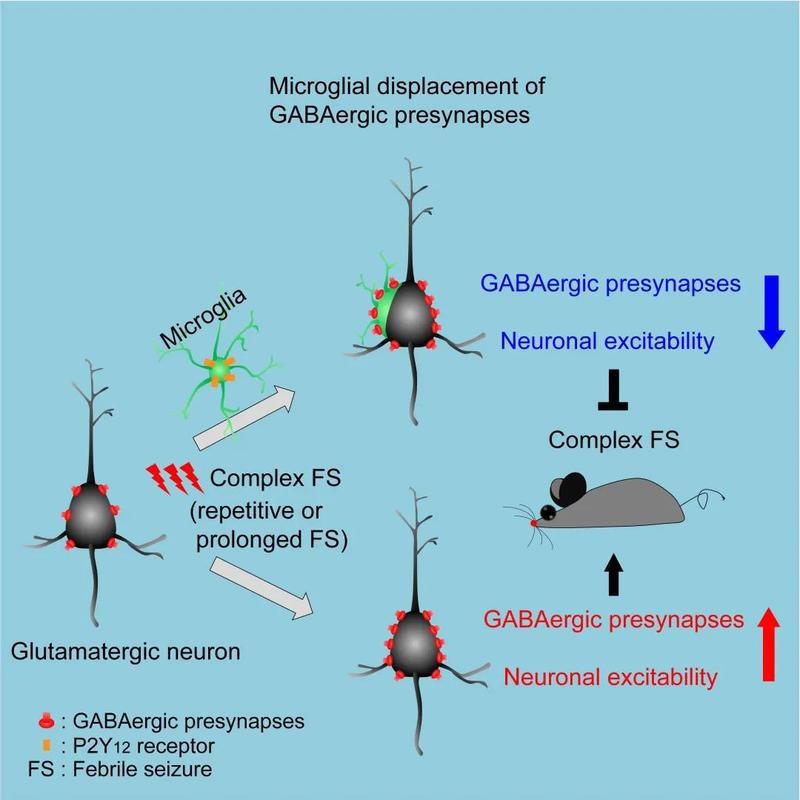On November 3, the team led by Prof. HU Weiwei from Zhejiang University School of Basic Medical Sciences / the Second Affiliated Hospital of Zhejiang University School of Medicine and Prof. CHEN Zhong from Zhejiang University College of Pharmaceutical Sciences published an open-access article entitled “Microglial displacement of GABAergic synapses is a protective event during complex febrile seizure” in the journal of Cell Reports.
Febrile seizures (FSs) are the most common form of infantile seizures, affecting 2%–5% of infants aged 3 months to 5 years. Although most FSs are apparently benign, one third of them are “complex,” leading to a high risk of intractable temporal lobe epilepsy during adulthood. However, the pathological process of complex FSs remains elusive. Microglia, the resident innate immune cells in the CNS, are activated following complex FSs. It is thus postulated that activated microglia would trigger complex FSs because of their potential role in the initiation of the proinflammatory cytokine cascade.
In the study, researchers discovered that activated microglia ensheathe glutamatergic neuronal soma and displace, but do not phagocytose, GABAergic presynaptic terminals during complex FSs. This observation led them to investigate the role of microglia-mediated presynaptic displacement in the pathological process of complex FSs. Patch-clamp electrophysiology confirmed that the microglial displacement of GABAergic presynapses abrogates a complex-FS-induced increase in GABAergic neurotransmission and neuronal excitability, whereas GABA exerts an excitatory action in this immature stage. Pharmacological inhibition of microglial displacement of GABAergic presynapses or selective ablation of microglia in CD11bDTR mice promotes the generation of complex FSs. Blocking or deleting the P2Y12 receptor (P2Y12R) reduces microglial displacement of GABAergic presynapses and shortens the latency of complex FSs. Together, microglial displacement of GABAergic presynapses, regulated by P2Y12R, reduces neuronal excitability to mitigate the generation of complex FSs.
This research delves deep into the pathological process of complex FSs and confirms that microglial displacement is a protective event in complex FSs.
